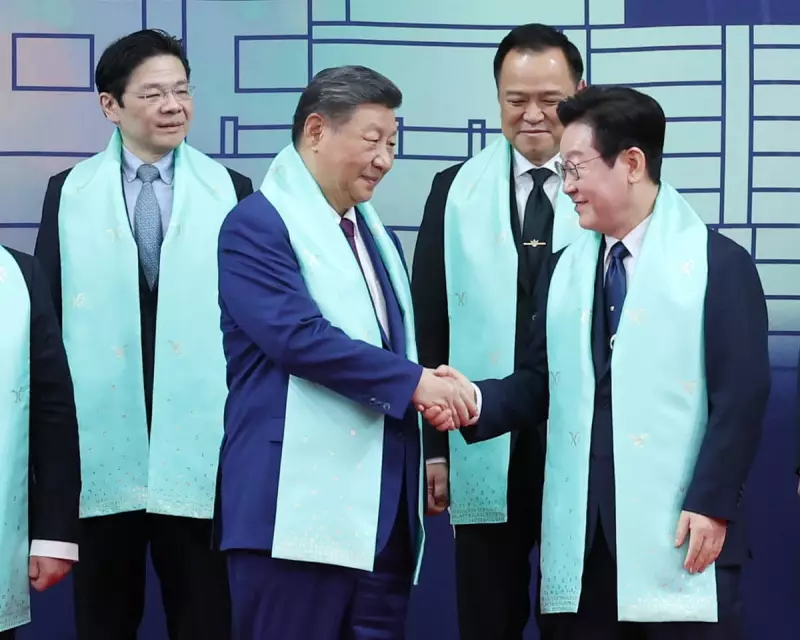
The APEC summit in Seoul has concluded, leaving in its wake a dramatically reshaped geopolitical landscape where Chinese President Xi Jinping emerged as the undisputed central figure. While Western leaders grappled with domestic political pressures, Xi seized the opportunity to project China as a pillar of global stability and economic cooperation.
A Stage Set for Chinese Leadership
The summit's timing proved fortuitous for Beijing, coinciding with political transitions in several Western nations that limited their leaders' diplomatic bandwidth. This vacuum created the perfect platform for Xi Jinping to advance China's vision for multilateral cooperation, emphasising economic stability and development across the Asia-Pacific region.
Diplomatic Whirlwind Reshapes Alliances
Beyond the main summit proceedings, President Xi engaged in an intensive series of bilateral meetings that may prove more significant than the formal gatherings. His discussions with leaders from across Southeast Asia and Latin America underscored China's methodical approach to building strategic partnerships outside traditional Western spheres of influence.
Key Diplomatic Achievements
- Strengthened economic ties with multiple Southeast Asian nations
- Advanced China's position as alternative development partner for Global South
- Reinforced message of China as reliable international stakeholder
- Demonstrated consistency in foreign policy amid Western political transitions
The Western Response: Fragmented and Reactive
Western powers, particularly the United States, appeared comparatively disjointed in their approach. The American delegation, while present, lacked the strategic coherence that characterised China's diplomatic offensive. European leaders similarly seemed preoccupied with internal political challenges, creating visible space for Beijing's agenda to dominate proceedings.
Economic Vision Versus Political Reality
Xi's emphasis on trade liberalisation and economic integration struck a deliberate contrast with rising protectionist sentiments in Western economies. The Chinese president positioned his nation as the steady hand guiding regional prosperity, even as questions persist about China's own economic challenges and the compatibility of its development model with Western economic principles.
Regional Implications: A Shifting Balance of Power
The summit outcomes suggest a notable recalibration of influence within the Asia-Pacific region. South Korea, as host, navigated delicate diplomatic waters while neighbouring nations appeared increasingly comfortable aligning with China's economic vision. The absence of substantive counter-proposals from Western participants only accelerated this trend.
The Seoul summit may be remembered as the moment China's diplomatic confidence matched its economic weight, presenting Western powers with a challenge that extends far beyond trade statistics into the fundamental architecture of international relations.





